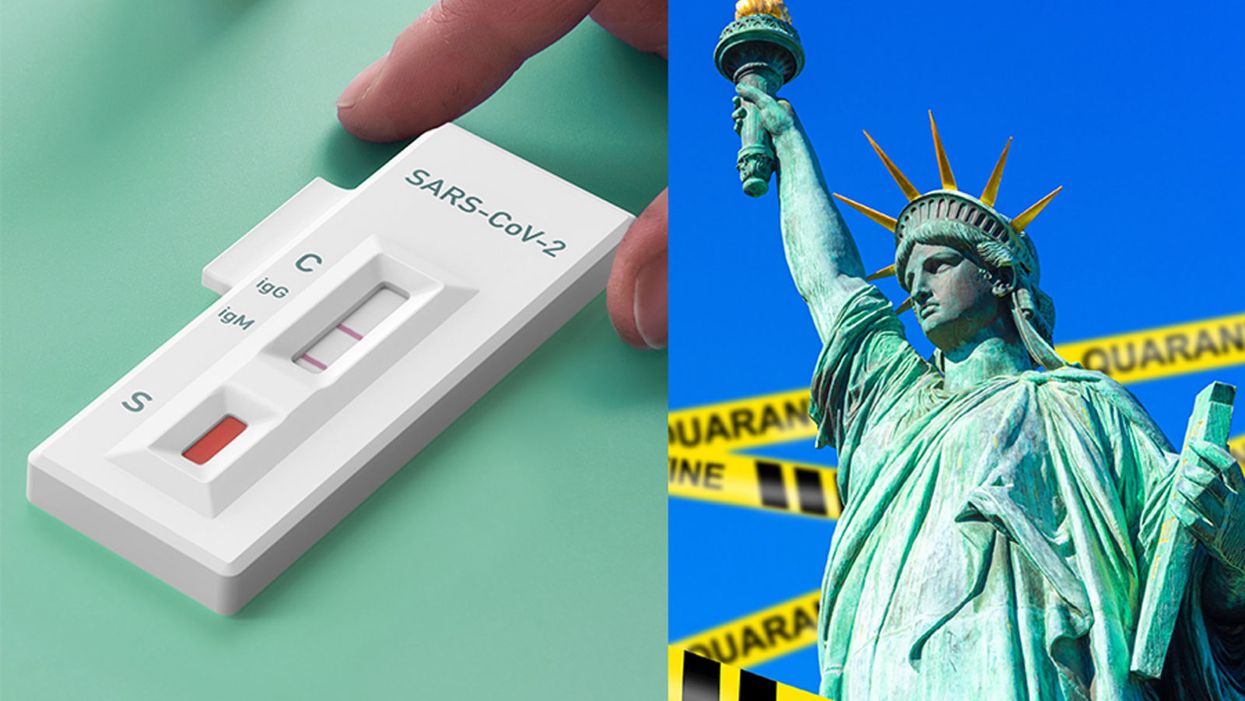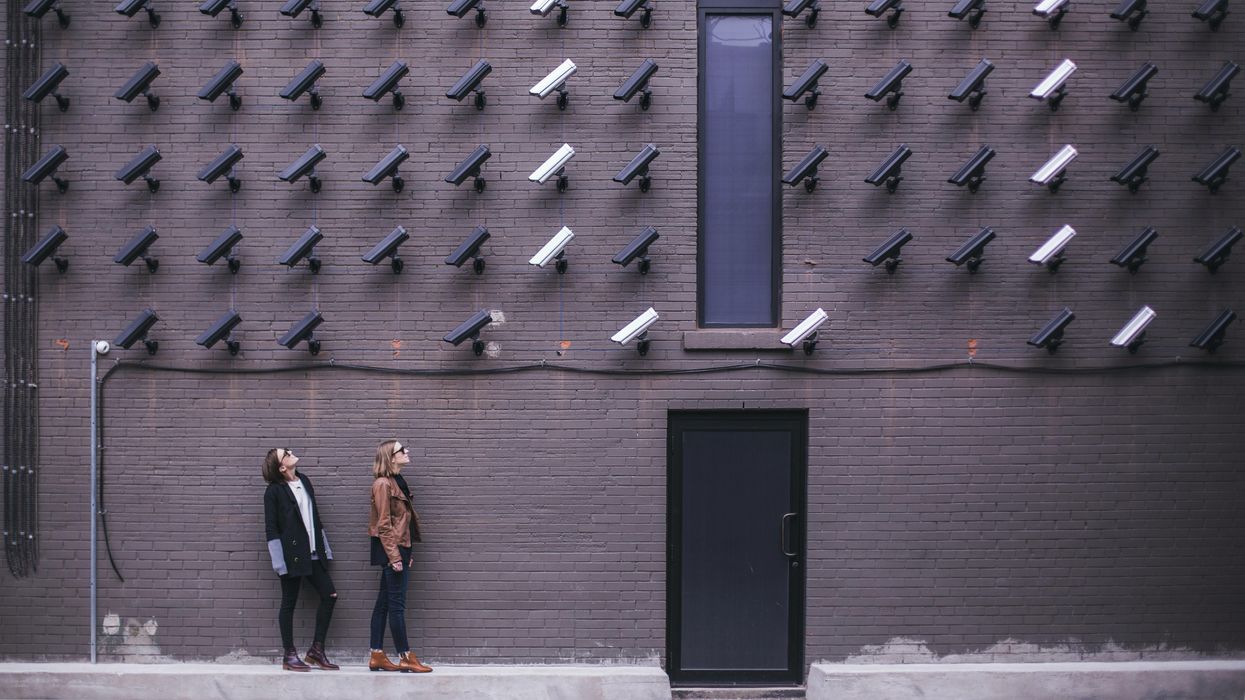Antibody Testing Alone is Not the Key to Re-Opening Society

Immunity tests have too many unknowns right now to make them very useful in determining protective antibody status.
[Editor's Note: We asked experts from different specialties to weigh in on a timely Big Question: "How should immunity testing play a role in re-opening society?" Below, a virologist offers her perspective.]
With the advent of serology testing and increased emphasis on "re-opening" America, public health officials have begun considering whether or not people who have recovered from COVID-19 can safely re-enter the workplace.
"Immunity certificates cannot certify what is not known."
Conventional wisdom holds that people who have developed antibodies in response to infection with SARS-CoV-2, the coronavirus that causes COVID-19, are likely to be immune to reinfection.
For most acute viral infections, this is generally true. However, SARS-CoV-2 is a new pathogen, and there are currently many unanswered questions about immunity. Can recovered patients be reinfected or transmit the virus? Does symptom severity determine how protective responses will be after recovery? How long will protection last? Understanding these basic features is essential to phased re-opening of the government and economy for people who have recovered from COVID-19.
One mechanism that has been considered is issuing "immunity certificates" to individuals with antibodies against SARS-CoV-2. These certificates would verify that individuals have already recovered from COVID-19, and thus have antibodies in their blood that will protect them against reinfection, enabling them to safely return to work and participate in society. Although this sounds reasonable in theory, there are many practical reasons why this is not a wise policy decision to ease off restrictive stay-home orders and distancing practices.
Too Many Scientific Unknowns
Serology tests measure antibodies in the serum—the liquid component of blood, which is where the antibodies are located. In this case, serology tests measure antibodies that specifically bind to SARS-CoV-2 virus particles. Usually when a person is infected with a virus, they develop antibodies that can "recognize" that virus, so the presence of SARS-CoV-2 antibodies indicates that a person has been previously exposed to the virus. Broad serology testing is critical to knowing how many people have been infected with SARS-CoV-2, since testing capacity for the virus itself has been so low.
Tests for the virus measure amounts of SARS-CoV-2 RNA—the virus's genetic material—directly, and thus will not detect the virus once a person has recovered. Thus, the majority of people who were not severely ill and did not require hospitalization, or did not have direct contact with a confirmed case, will not test positive for the virus weeks after they have recovered and can only determine if they had COVID-19 by testing for antibodies.
In most cases, for most pathogens, antibodies are also neutralizing, meaning they bind to the virus and render it incapable of infecting cells, and this protects against future infections. Immunity certificates are based on the assumption that people with antibodies specific for SARS-CoV-2 will be protected against reinfection. The problem is that we've only known that SARS-CoV-2 existed for a little over four months. Although studies so far indicate that most (but not all) patients with confirmed COVID-19 cases develop antibodies, we don't know the extent to which antibodies are protective against reinfection, or how long that protection will last. Immunity certificates cannot certify what is not known.
The limited data so far is encouraging with regard to protective immunity. Most of the patient sera tested for antibodies show reasonable titers of IgG, the type of antibodies most likely to be neutralizing. Furthermore, studies have shown that these IgG antibodies are capable of neutralizing surrogate viruses as well as infectious SARS-CoV-2 in laboratory tests. In addition, rhesus monkeys that were experimentally infected with SARS-CoV-2 and allowed to recover were protected from reinfection after a subsequent experimental challenge. These data tentatively suggest that most people are likely to develop neutralizing IgG, and protective immunity, after being infected by SARS-CoV-2.
However, not all COVID-19 patients do produce high levels of antibodies specific for SARS-CoV-2. A small number of patients in one study had no detectable neutralizing IgG. There have also been reports of patients in South Korea testing PCR positive after a prior negative test, indicating reinfection or reactivation. These cases may be explained by the sensitivity of the PCR test, and no data have been produced to indicate that these cases are genuine reinfection or recurrence of viral infection.
Complicating matters further, not all serology tests measure antibody titers. Some rapid serology tests are designed to be binary—the test can either detect antibodies or not, but does not give information about the amount of antibodies circulating. Based on our current knowledge, we cannot be certain that merely having any level of detectable antibodies alone guarantees protection from reinfection, or from a subclinical reinfection that might not cause a second case of COVID-19, but could still result in transmission to others. These unknowns remain problematic even with tests that accurately detect the presence of antibodies—which is not a given today, as many of the newly available tests are reportedly unreliable.
A Logistical and Ethical Quagmire
While most people are eager to cast off the isolation of physical distancing and resume their normal lives, mere desire to return to normality is not an indicator of whether those antibodies actually work, and no certificate can confer immune protection. Furthermore, immunity certificates could lead to some complicated logistical and ethical issues. If antibodies do not guarantee protective immunity, certifying that they do could give antibody-positive people a false sense of security, causing them to relax infection control practices such as distancing and hand hygiene.
"We should not, however, place our faith in assumptions and make return to normality contingent on an arbitrary and uninformative piece of paper."
Certificates could be forged, putting susceptible people at higher exposure risk. It's not clear who would issue them, what they would entitle the bearer to do or not do, or how certification would be verified or enforced. There are many ways in which such certificates could be used as a pretext to discriminate against people based on health status, in addition to disability, race, and socioeconomic status. Tracking people based on immune status raises further concerns about privacy and civil rights.
Rather than issuing documents confirming immune status, we should instead "re-open" society cautiously, with widespread virus and serology testing to accurately identify and isolate infected cases rapidly, with immediate contact tracing to safely quarantine and monitor those at exposure risk. Broad serosurveillance must be coupled with functional assays for neutralization activity to begin assessing how protective antibodies might actually be against SARS-CoV-2 infection. To understand how long immunity lasts, we should study antibodies, as well as the functional capabilities of other components of the larger immune system, such as T cells, in recovered COVID-19 patients over time.
We should not, however, place our faith in assumptions and make return to normality contingent on an arbitrary and uninformative piece of paper. Re-opening society, the government, and the economy depends not only on accurately determining how many people have antibodies to SARS-CoV-2, but on a deeper understanding of how those antibodies work to provide protection.
Podcast: The Friday Five weekly roundup in health research
Scientists have designed a phone app that could alert consumers to high levels of cancer-causing chemicals, Yale researchers revive organs in dead pigs, and more in this week's Friday Five.
The Friday Five covers five stories in health research that you may have missed this week. There are plenty of controversies and troubling ethical issues in science – and we get into many of them in our online magazine – but this news roundup focuses on scientific creativity and progress to give you a therapeutic dose of inspiration headed into the weekend.
Listen to the Episode
Listen on Apple | Listen on Spotify | Listen on Stitcher | Listen on Amazon | Listen on Google
Covered in this week's Friday Five:
- A new blood test for cancer
- Patches of bacteria can use your sweat to power electronic devices
- Researchers revive organs of dead pigs
- Phone apps detects cancer-causing chemicals in foods
- Stem cells generate "synthetic placentas" in mice
Plus, an honorable mention for early research involving vitamin K and Alzheimer's
The limits of digital privacy are becoming clearer in the post-Dobbs era, as a wide range of data sources can reveal online and offline activities, including whether a woman seeks an abortion.
Since the recent reversal of Roe v. Wade — the landmark decision establishing a constitutional right to abortion — the vulnerabilities of reproductive health data and various other information stored on digital devices or shared through the Web have risen to the forefront.
Menstrual period tracking apps are an example of how technologies that collect information from users could be weaponized against abortions seekers. The apps, which help tens of millions of users in the U.S. predict when they’re ovulating, may provide evidence that leads to criminal prosecution in states with abortion bans, says Anton T. Dahbura, executive director of the Johns Hopkins University Information Security Institute. In states where abortion is outlawed, “it’s probably best to not use a period tracker,” he says.
Following the Dobbs v. Jackson ruling in late June that overturned Roe, even women who suffered a miscarriage could be suspected of having an abortion in some cases. While using these apps in anonymous mode may appear more secure, “data is notoriously difficult to perfectly anonymize,” Dahbura says. “Whether the data are stored on the user’s device or in the cloud, there are ways to connect that data to the user.”
Completely concealing one’s tracks in cyberspace poses enormous challenges. Digital forensics can take advantage of technology such as GPS apps, security cameras, license plate trackers, credit card transactions and bank records to reconstruct a person’s activities,” Dahbura says. “Abortion service providers are also in a world of risk for similar reasons.”
Practicing “good cyber hygiene” is essential. That’s particularly true in states where private citizens may be rewarded for reporting on women they suspect of having an abortion, such as Texas, which passed a so-called bounty hunter law last fall. To help guard against hacking, Dahbura suggests using strong passwords and two-factor authentication when possible while remaining on alert for phishing scams on email or texts.
Another option for safeguarding privacy is to avoid such apps entirely, but that choice will depend on an individual’s analysis of the risks and benefits, says Leah Fowler, research assistant professor at the University of Houston Law Center, Health Law & Policy Institute.
“These apps are popular because people find them helpful and convenient, so I hesitate to tell anyone to get rid of something they like without more concrete evidence of its nefarious uses,” she says. “I also hate the idea that asking anyone capable of becoming pregnant to opt out of all or part of the digital economy could ever be a viable solution. That’s an enormous policy failure. We have to do better than that.”
The potential universe of abortion-relevant data can include information from a variety of fitness and other biometric trackers, text and social media chat records, call details, purchase histories and medical insurance records.
Instead, Fowler recommends that concerned consumers read the terms of service and privacy policies of the apps they’re using. If some of the terms are unclear, she suggests emailing customer service with questions until the answers are satisfactory. It’s also wise for consumers to research products that meet their specific needs and find out whether other women have raised concerns about specific apps. Users interested in more privacy may want to switch to an app that stores data locally, meaning the data stays on your device, or does not use third-party tracking, so the app-maker is the only company with access to it, she says.
Period tracking apps can be useful for those on fertility journeys, making it easier to store information digitally than on paper charts. But users may want to factor in whether they live in a state with an anti-abortion stance and run the risk of legal issues due to a potential data breach, says Carmel Shachar, executive director of the Petrie-Flom Center for Health Law Policy, Biotechnology, and Bioethics at Harvard Law School.
Consumers’ risks extend beyond period tracking apps in the post-Roe v. Wade era. “Anything that creates digital breadcrumbs to your reproductive choices and conduct could raise concerns — for example, googling ‘abortion providers near me’ or texting your best friend that you are pregnant but do not want to be,” Shachar says. Women also could incriminate themselves by bringing their phones, which may record geolocation data, to the clinic with them.
The potential universe of abortion-relevant data can include information from a variety of fitness and other biometric trackers, text and social media chat records, call details, purchase histories and medical insurance records, says Rebecca Wexler, faculty co-director of the Berkeley Center for Law & Technology. “These data sources can reveal a pregnant person’s decision to seek or obtain an abortion, as well as reveal a healthcare provider’s provision of abortion services and anyone else’s provision of abortion assistance,” she says.
In some situations, people or companies could inadvertently expose themselves to risk after posting on social media with offers of places for abortion seekers to stay after traveling from states with bans. They could be liable for aiding and abetting abortion. At this point, it’s unclear whether states that ban abortion will try to prosecute residents who seek abortions in other states without bans.
Another possibility is that a woman seeking an abortion will be prosecuted based not only on her phone’s data, but also on the data that law enforcement finds on someone else’s device or a shared computer. As a result, “people in one household may find themselves at odds with each other,” says K Royal, faculty fellow at the Center for Law, Science, and Innovation at Arizona State University’s Sandra Day O'Connor College of Law. “This is a very delicate situation.”
Individuals and corporate executives should research their options before leaving a digital footprint. “Guard your privacy carefully, whether you are seeking help or you are seeking to help someone,” Royal says. While she has come across recommendations from other experts who suggest carrying a second phone that is harder to link a person’s identity for certain online activities, “it’s not practical on a general basis.”
The privacy of this health data isn’t fully protected by the law because period trackers, texting services and other apps are not healthcare providers — and as a result, there’s no prohibition on sharing the information with a third party under the Health Insurance Portability and Accountability Act of 1996, says Florencia Marotta-Wurgler, a professor who specializes in online consumer contracts and data privacy at the NYU School of Law.
“So, as long as there is valid consent, then it’s fair game unless you say that it violates the reasonable expectations of consumers,” she says. “But this is pretty unchartered territory at the moment.”
As states implement laws granting anyone the power to report suspected or known pregnancies to law enforcement, anti-choice activists are purchasing reproductive health data from companies that make period apps, says Rebecca Herold, chief executive officer of Privacy & Security Brainiacs in Des Moines, Iowa, and a member of the Emerging Trends Working Group at ISACA, an association focused on information technology governance. They could also buy data on search histories and make it available in places like Texas for “bounty hunters” to find out which women have searched for information about abortions.
Some groups are creating their own apps described as providing general medical information on subjects such as pregnancy health. But they are “ultimately intended to ‘catch’ women” — to identify those who are probably pregnant and dissuade them from having an abortion, to launch harassment campaigns against them, or to report them to law enforcement, anti-choice groups and others in states where such prenatal medical care procedures are now restricted or prohibited, Herold says.
In addition to privacy concerns, the reversal of Roe v. Wade raises censorship issues. Facebook and Instagram have started to remove or flag content, particularly as it relates to providing the abortion pill, says Michael Kleinman, director of the Silicon Valley Initiative at Amnesty International USA, a global organization that promotes human rights.
Facebook and Instagram have rules that forbid private citizens from buying, selling or giving away pharmaceuticals, including the abortion pill, according to a social media post by a communications director for Meta, which owns both platforms. In the same post, though, the Meta official noted that the company’s enforcement of this rule has been “incorrect” in some cases.
“It’s terrifying to think that arbitrary decisions by these platforms can dramatically limit the ability of people to access critical reproductive rights information,” Kleinman says. However, he adds, “as it currently stands, the platforms make unilateral decisions about what reproductive rights information they allow and what information they take down.”

